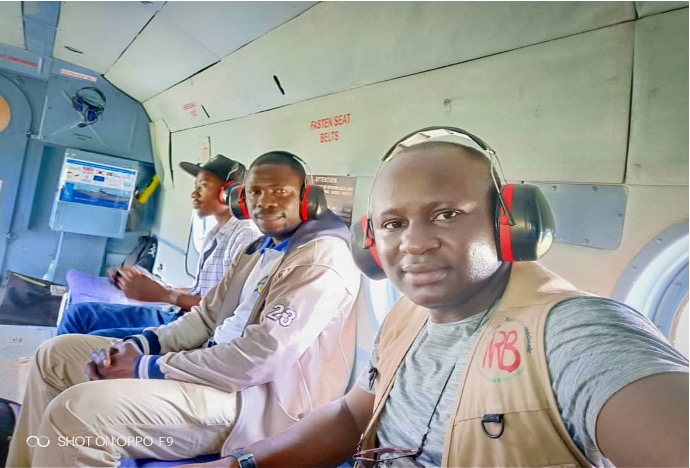
Dr. Daniel Mukadi-Bamuleka and colleagues in the Democratic Republic of the Congo.
Dr. Daniel Mukadi-Bamuleka is a medical virologist from the Democratic Republic of the Congo (DRC) with over ten years of experience in controlling epidemic diseases such as Ebola, Monkeypox, Measles, Chikungunya, Poliovirus, and HIV. He has been directly involved in coordinating laboratory responses for six Ebola virus disease outbreaks in the DRC, including the deadliest outbreak in the country’s history (2018-2020).
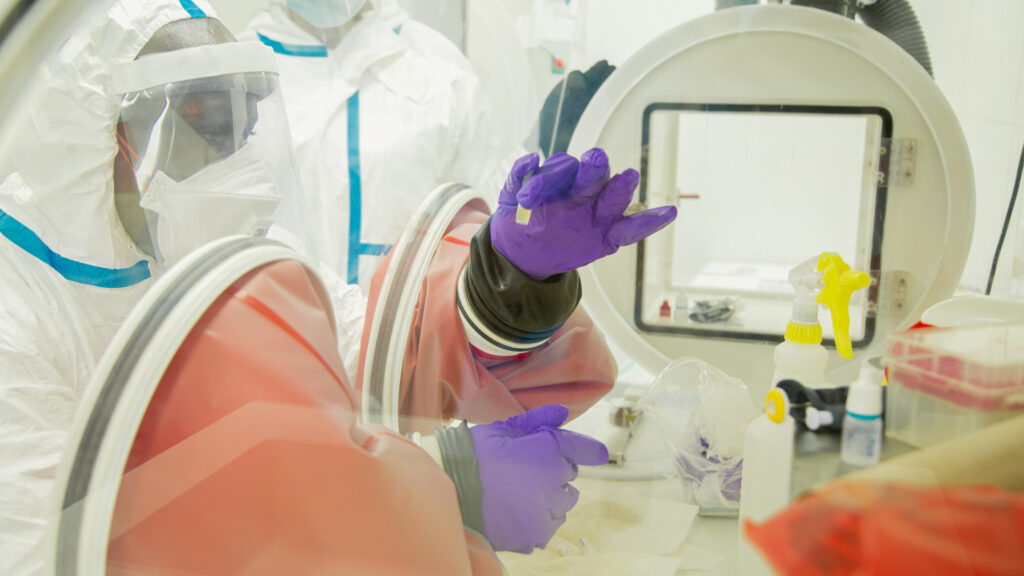
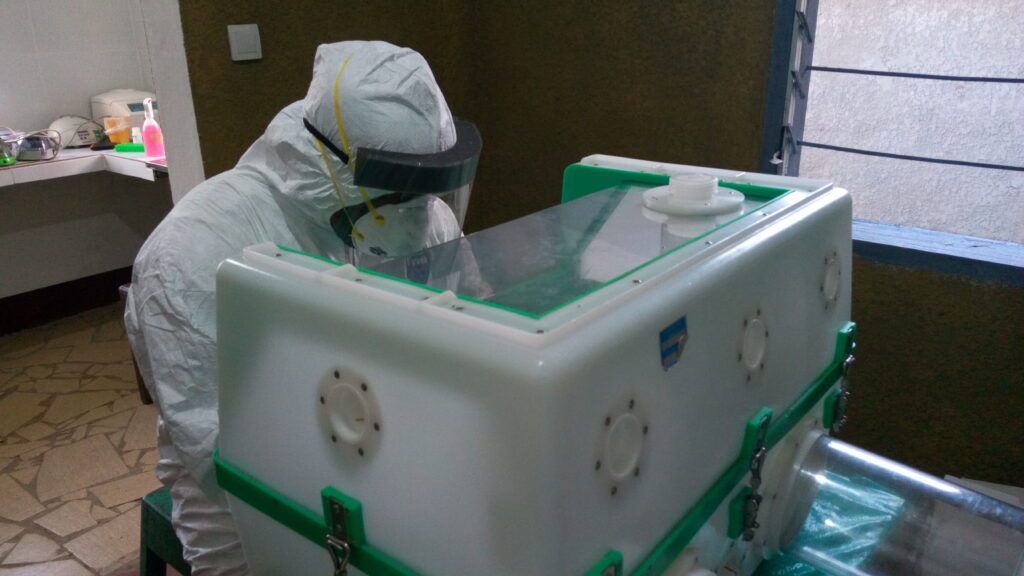
Dr. Mukadi-Bamuleka in the lab analysing Ebola virus samples.
He started his research career at the Institut National de Recherche Biomédicale (INRB), the national public health laboratory of the DRC, led by Prof. Jean-Jacques Muyembe-Tamfum. His interest in virology was stimulated by Prof. Steve Ahuka-Mundeke, the Head of the Virology department at INRB.
During the 2018-2020 outbreak, Dr. Mukadi-Bamuleka coordinated the deployment of laboratories to support diagnostic and sequencing activities at the epicenters of the Ebola outbreak. These laboratories helped guide public health decision-making, contact tracing, preemptive vaccination, and the building of unknown transmission chains, providing important insights into outbreak dynamics, at-risk populations, and exposed health zones.



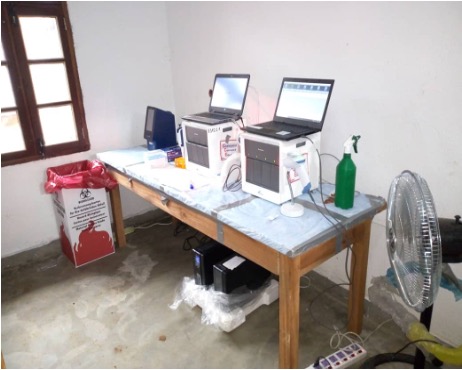
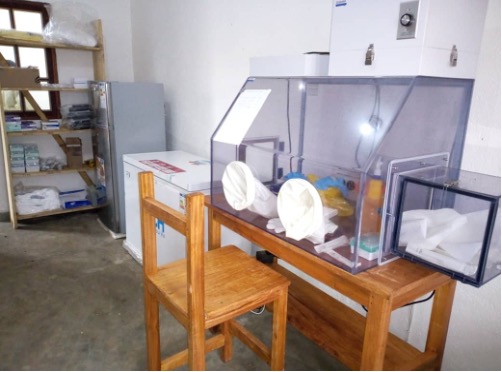

The labs in the Democratic Republic of the Congo.
In 2019, when Dr. Mukadi-Bamuleka was coordinating 13 Ebola field laboratories across 3 provinces of the DRC, Dr. Anja De Weiggheleire from the Institute of Tropical Medicine-Antwerp (ITM) approached him about doing a PhD. His PhD journey at UAntwerp started in November 2019 when he joined his PhD supervisors in Belgium, Prof. Kevin Ariën (UAntwerp/ITM) and Prof. Johan van Griensven (ITM).
During his PhD, Dr. Mukadi-Bamuleka evaluated the performance of Ebola rapid diagnostic tests (RDTs) in outbreak conditions, comparing them to the GeneXpert® assay, which is the reference test for Ebola. He found that QuickNaviTM and OraQuick® RDTs showed high specificity and reasonable sensitivity compared to the standard GeneXpert® assay. While they did not meet WHO requirements for Ebola tests, they could be used as a rapid screening panel at the point-of-care to quickly triage and isolate suspected Ebola cases, while waiting for confirmatory results. Postmortem surveillance with the OraQuick® test also complemented the Ebola response efforts, improved community engagement, and decreased the number of systematic safe and dignified burials in corpses with non-reactive tests.

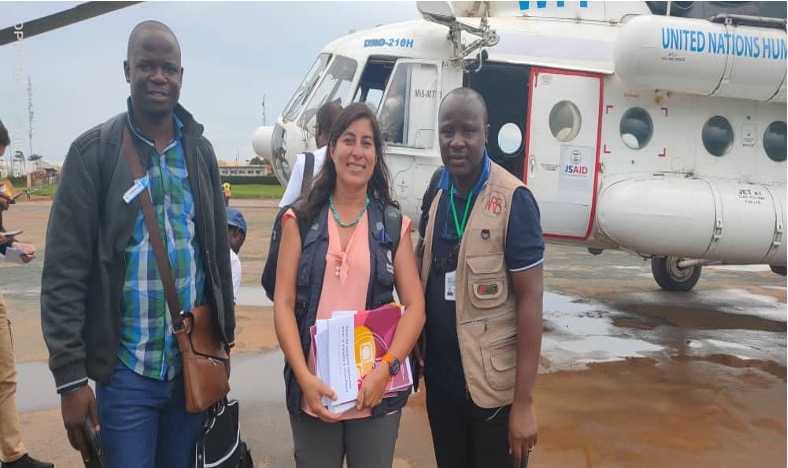
Dr. Mukadi-Bamuleka and a colleague coordinating activities at the epicenters of an Ebola outbreak.
Dr. Mukadi-Bamuleka’s work highlights the importance of decentralized and strategically positioned diagnostic laboratories in controlling outbreaks, as well as the potential of rapid diagnostic tests for the triage and isolation of suspected Ebola cases. His contributions to the field of medical virology and public health in the DRC are invaluable in the fight against infectious diseases.
Article written by Dr. Mukadi-Bamuleka. Edited by Dr. Bronwen Martin.
